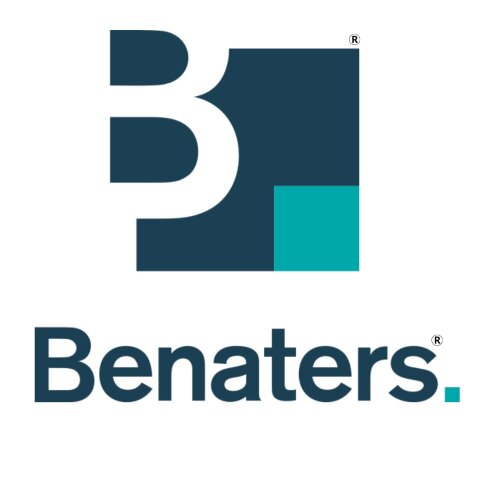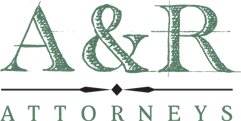Best Business Lawyers in Johannesburg
Share your needs with us, get contacted by law firms.
Free. Takes 2 min.
List of the best lawyers in Johannesburg, South Africa
About Business Law in Johannesburg, South Africa
Johannesburg, often referred to as the economic powerhouse of Africa, serves as a hub for various business activities ranging from mining to finance and technology. Business law in Johannesburg encompasses a wide range of activities and regulations, governing everything from company formation, mergers and acquisitions, contracts, employment law, to intellectual property rights. With its complex yet dynamic market, businesses in Johannesburg operate within a robust legal framework designed to ensure fair trade practices, competition, and business growth.
Why You May Need a Lawyer
In Johannesburg, there are several common situations where businesses may require legal assistance, including:
Company Formation and Structuring: Legal advice is crucial when choosing the right business structure and drafting documents like the memorandum of incorporation.
Contract Drafting and Negotiation: Crafting legally binding agreements that cover all aspects of business relationships can help prevent future disputes.
Compliance with Local Laws: South Africa has a myriad of regulations affecting businesses, from labor laws to tax codes, necessitating expert navigation to avoid penalties.
Dispute Resolution: A lawyer can assist in resolving conflicts that arise in the course of business, whether through litigation or alternative dispute resolution methods.
Intellectual Property Protection: Ensuring that patents, trademarks, and copyrights are properly registered and protected to prevent infringement.
Local Laws Overview
Johannesburg businesses must adhere to a range of local laws, including:
Companies Act: Governs all procedures related to the incorporation, management, and dissolution of companies.
Consumer Protection Act: Protects consumer rights and requires businesses to engage in fair trading practices.
Broad-Based Black Economic Empowerment (BBBEE): Ensures economic transformation and participation of black individuals in the economy.
Employment Equity Act: Promotes equal opportunity and fair treatment in the workplace.
National Credit Act: Regulates credit information sharing and the behavior of credit providers towards consumers.
Frequently Asked Questions
What is the process for starting a business in Johannesburg?
Starting a business typically involves registering a company with the Companies and Intellectual Property Commission (CIPC), obtaining the necessary licenses and permits, and ensuring compliance with taxation and labor laws.
What should I include in a business contract?
A business contract should clearly outline the terms and conditions, obligations of each party, payment details, termination conditions, and dispute resolution mechanisms.
How does the BBBEE scorecard affect my business?
The BBBEE scorecard measures a company's direct and indirect economic empowerment of black individuals. It affects eligibility for government contracts and can influence your business's reputation and attractiveness to partners.
What are the major taxes that businesses must pay in Johannesburg?
Businesses must pay various taxes, including corporate income tax, value-added tax (VAT), and potentially pay-as-you-earn (PAYE) tax for employees.
How can I protect my business's intellectual property?
Intellectual property can be protected by registering patents, trademarks, and copyrights through the CIPC, ensuring that your creations and inventions are legally recognized and safeguarded from infringement.
What are the key considerations when hiring employees?
Businesses must comply with employment laws covering contracts, equitable treatment, workplace safety, and employee benefits, as outlined in the Labour Relations Act and Basic Conditions of Employment Act.
What is business rescue in South Africa?
Business rescue provides financially distressed companies a lifeline by temporarily placing them under the supervision of a business rescue practitioner to manage, recover, and reorganize the company.
Can foreign nationals start a business in Johannesburg?
Yes, with a correct business visa or permits, foreign nationals can start a business, but it's vital to comply with immigration and company registration requirements.
What should I do in case of a contract dispute?
It's advisable to consult with a lawyer who can assist with negotiation, mediation, arbitration, or litigation, depending on the complexity of the dispute.
How is data protection handled by businesses in Johannesburg?
Businesses must comply with the Protection of Personal Information Act (POPIA) to lawfully manage and protect personal information, safeguarding privacy rights.
Additional Resources
For additional assistance, consider reaching out to these resources:
Companies and Intellectual Property Commission (CIPC): Offers comprehensive services for business registration, patent, and trademark applications.
South African Revenue Service (SARS): Provides detailed information and services regarding taxation.
Department of Trade, Industry and Competition (DTIC): Guides businesses through regulatory requirements and BBBEE compliance.
Legal Aid South Africa: Provides access to legal advice and public legal education.
Next Steps
If you believe you need legal assistance in business matters, here are the steps you should consider taking:
Identify Specific Needs: Clearly define your business’s legal issues or needs, whether it's contract help, compliance, or dispute resolution.
Research and Select a Lawyer: Look for legal professionals with expertise in business law. Check qualifications, client reviews, and experience in your specific area of concern.
Prepare Your Documents: Gather all relevant documents and information related to your issue to present a clear picture to your lawyer.
Schedule a Consultation: Contact the lawyer or law firm to schedule a consultation to discuss your situation and the steps forward.
Evaluate Your Options: After seeking legal advice, consider your options, and decide on the best course of action for your business.
Lawzana helps you find the best lawyers and law firms in Johannesburg through a curated and pre-screened list of qualified legal professionals. Our platform offers rankings and detailed profiles of attorneys and law firms, allowing you to compare based on practice areas, including Business, experience, and client feedback.
Each profile includes a description of the firm's areas of practice, client reviews, team members and partners, year of establishment, spoken languages, office locations, contact information, social media presence, and any published articles or resources. Most firms on our platform speak English and are experienced in both local and international legal matters.
Get a quote from top-rated law firms in Johannesburg, South Africa — quickly, securely, and without unnecessary hassle.
Disclaimer:
The information provided on this page is for general informational purposes only and does not constitute legal advice. While we strive to ensure the accuracy and relevance of the content, legal information may change over time, and interpretations of the law can vary. You should always consult with a qualified legal professional for advice specific to your situation.
We disclaim all liability for actions taken or not taken based on the content of this page. If you believe any information is incorrect or outdated, please contact us, and we will review and update it where appropriate.
Browse business law firms by service in Johannesburg, South Africa
Johannesburg, South Africa Attorneys in related practice areas.
















